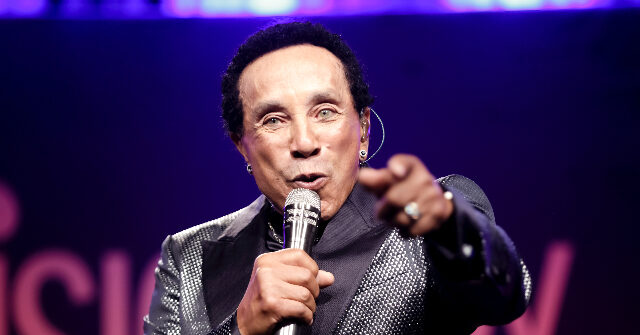R&B legend Smokey Robinson recently made headlines with a poignant and critical video endorsement of Vice President Kamala Harris. In the video, Robinson expressed his disbelief and frustration regarding women and people of color who would consider voting for former President Donald Trump. “I really don’t understand how any person of color or any woman could find it in their hearts to vote for Donald Trump,” he stated, emphasizing the gravity of the political climate. He characterized the upcoming election as a pivotal moment in American history, describing it as a “choice between good and evil.” The urgency in his voice reflected both his disillusionment with the current political landscape and his desire to influence voters toward what he perceives as the right decision.
Robinson elaborated on his sentiments by asserting that this election is the most significant of his lifetime. As a renowned artist of resounding influence, he expressed a sense of responsibility to use his platform to guide public sentiment. He urged his followers to “wake up,” highlighting the importance of making informed choices about leadership and governance. His message was clear: a vote for Trump would be a vote against the values he believes are essential for a functioning democracy. He ended his appeal by encouraging voters to actively participate in the electoral process and to cast their votes for Kamala Harris, whom he believes embodies the principles he stands for.
Despite Robinson’s impassioned pleas, social media responses were mixed, with many users rejecting his political commentary. Some individuals articulated their plans to vote for Trump, proclaiming that they do not take guidance from “millionaires & coastal elites.” This sentiment reflects a broader trend in which public figures, particularly those from the entertainment industry, are often met with skepticism or resistance when engaging in politics. Users expressed their appreciation for Robinson’s music while simultaneously urging him to refrain from political involvement, indicating a general desire to separate artistry from political discourse.
Critics did not hold back in their responses, with many arguing that Robinson failed to provide substantive reasons for supporting Harris over Trump. “Just because you said he is bad does not mean it is true,” was one comment that encapsulated the sentiment of those who felt that emotional appeals do not suffice without concrete arguments. The backlash exemplified a broader divide in American politics, especially among different demographics, including women and minorities, who may hold diverse views on candidates and issues.
In a parallel discussion regarding celebrity involvement in politics, billionaire investor Mark Cuban also weighed in, criticizing Trump and suggesting that he often surrounds himself with less competent individuals. Cuban’s remarks echoed a common sentiment within certain circles of the entertainment and business elite, who perceive Trump as fundamentally misaligned with their values and ideals. Meanwhile, President Joe Biden did not hold back either, labeling Trump supporters as “garbage,” a remark that further illustrates the current polarized political atmosphere. These comments from both Robinson and Cuban contribute to a growing discourse that ties celebrity status to political influence, though often with contentious results.
As the political landscape continues to evolve leading up to the election, figures like Smokey Robinson reflect a segment of society that feels compelled to speak out against candidates they believe threaten democratic ideals. However, the pushback they face serves as a reminder of the complexities inherent in American political engagement, where celebrity endorsements can invigorate discussions while simultaneously alienating sections of the electorate. The intersection of music, politics, and identity raises essential questions about influence, responsibility, and the role of public figures in shaping political discourse. As the election draws nearer, it remains to be seen how these dynamics will further unfold within the broader societal context.

